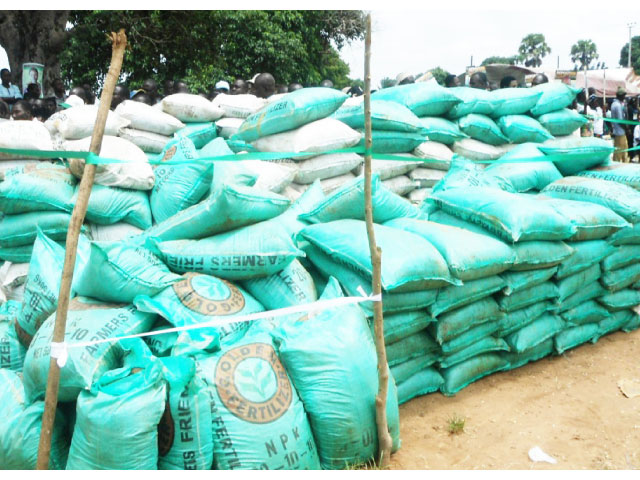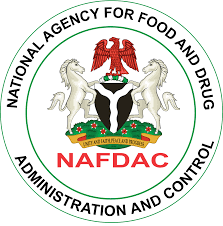Agriculture
Nanono: Once Upon a Minister

By JOSEPH CHIBUEZE, Abuja
The sack of Alhaji Muhammad Sabo Nanono as the Minister of Agriculture
and Rural Development by President Muhammadu Buhari on September 1
2021, did not come to many as a surprise. In fact many stakeholders
are of the opinion that the sack should have come long ago.
Nanono assumed duty as Agric Minister in August 2019 at a time there
was a lot of expectations from the agric sector because of the level
of hunger in the land, (a situation that has persisted till date). It
was also a time the administration of President Buhari expected so
much from the agric sector for the diversification of the nation’s
economy which hitherto had depended mainly on crude oil.
There was no doubt Mr Nanono knew the enormity of the responsibility
thrust on him. Unfortunately, because he had no blue print of what he
really wanted to achieve as a minister, the ministry under him had
been wandering like a rudderless ship. His first sin was that he is
not a team player, he sidelined most of the key stakeholders including
directors in his ministry. He denied himself valuable inputs from
these stakeholders.
Little wonder why the mood at the headquarters of the ministry when
the news of his sack filtered in was that of jubilation.
He was also involved in petty politics, promoting a faction of farmers
association when he should have been playing a unifying role of
galvanising the farmers to produce more food for the nation.
One of his controversial actions that generated a lot of negative
publicity for him and the ministry, and which may have caused
embarrassment to the President was his ministry’s use of N30 million
public funds to build Mosque for herdsmen in Borno State. Nigerians
only got to know about the project through a leaked memo.
It was therefore not surprising when one of the reasons given by the
president for the sack was the fact that a after a review of his
performance it was discovered that he had under performed and
therefore necessitating a change of leadership to strengthen weak
areas.
But that is not to say that the minister spent the two years in the
ministry doing nothing. Of course there were some laudable initiatives
including the agric mechanisation hubs in 650 local governments to
support the farming communities.
“The mechanisation hubs which will be stocked with modern farming
equipment, like tractors, power tiller, and harvesters among others,
will also serve as centres for training the farmers on modern farming
techniques,” the minister noted.
Eventually, the Federal Executive Council (FEC) approved a loan
facility of $1.2 billion to finance the mechanisation of agriculture
in the country. Unfortunately, till he was sacked, that project is
still in the pipeline.
While the COVID-19 lockdown measures imposed by the government took a
toll on agricultural activities and food systems, the government
launched the Agriculture for Food and Job Plan, a component of the
Nigeria Economic and Sustainability Plan (NESP), to cushion the
impacts of the pandemic on the farmers and the economy.
Also, upon the commencement of last year’s planting season, the
National Agricultural Seed Council (NASC) certified 81,000 metric
tonnes of seeds across the country, so as to enable farmers’ easy
access to viable and high yielding inputs at affordable prices.
In addition, President Buhari directed Mr Nanono and other key players
of the sector to join the already existing 12-member Presidential Task
Force for COVID-19.
The minister later flagged off the distribution of agricultural inputs
to Nigerian farmers across the country.
This, he said, was aimed at boosting agricultural production in the
country and averting food scarcity in 2021.
Some of the inputs distributed to the smallholder farmers include
varieties of rice, maize, and wheat seeds including cocoa and palm
seedlings, among others.
In a quick reaction to the sack of the former minister, the All
Farmers Association of Nigeria (AFAN) described it as long overdue.
National President, AFAN, Arc Kabir Ibrahim in a statement shortly
after the news broke said, “The former Minister of Agriculture and
Rural Development, Mohammad Sabo Nanono, did not in any way contribute
to the drive and passion of the President to achieve food sufficiency
for Nigeria rather he was doing what he liked and he didn’t want to
understand any of the things we were doing to improve the agriculture
space.
“He was the man that said there were no seeds in Nigeria, and as the
protem chairman of Seed Council Board he never attended so many
meetings of the Seed Council.
“In the Ministry, we know that about 70 per cent of the directors were
not working with him because he did not want to work with them. He had
some favourites that he worked with.
“So many other things went wrong. He also went as far as to pocket
AFAN by bringing a usurper from Kano to head AFAN, but he did not
succeed because AFAN is greater than an individual.
“Now the President is clear on what he wants to do in the agriculture
space, which agriculture will be brought to the front burner.”
He said AFAN is ready to support the new miniter. According to him,
“We are ready to cooperate with him, we have already sent
congratulatory messages to him, and we are pledging to support him to
achieve food security for this country.
“Our advice to the new Minister of Agriculture is to work with all
stakeholders. He should not segregate anybody, work with all his
staff, allow everybody to do their bit, and make sure that there is
transparency in all they do, and drive the vision and passion of the
President because the President is very clear and showing the whole
world that his passion is on agriculture.
“The interventions and efforts from Central Bank of Nigeria, CBN,
NIRSAL, and all these stakeholders- Bank of Industry, Bank of
Agriculture, Ministries of Transport, Environment, and others so they
should all co-live to get the agriculture space effectively working
because these are broad issues allocated to them so that agriculture
will now take its own place because it will gradually replace oil. So
that is what we are advising him to move with stakeholders.”
Agriculture
Experts urge Media to Present Information on Genetically Modified Foods Objectively

The National Biotechnology Research and Development Agency (NBRDA) has urged the media to stand in the communication gap in favour of biotechnology development n Nigeria, re-affirming the safety in the consumption of genetically modified foods.
Prof. Abdullahi Mustapha, Director General/Chief Executive Officer of the agency, affirmed this during a one-day media field trip to NBRDA FARMS on Monday in Abuja.
The trip was organised by Open Forum On Agricultural Biotechnology (OFAB), an initiative of the African Agricultural Technology Foundation (AATF).
“Today, you shall be visiting our TELA Maize farms. This provides an exciting opportunity to see for yourselves what we have been doing here and equally gather your findings on what you have seen today and then take back the message to the people to quell some of the miscommunications about Genetically Modified Organisms (GMO) crops.
“TELA Maize hybrid varieties were developed to address some of the pressing challenges facing our farmers, including pests and diseases that can significantly reduce crop yields,” he said.
According to him, the production of the TELA MAIZE hybrid was done through the combined efforts of scientists at the Institute for Agricultural Research (IAR), Zaria in collaboration with stakeholders in key institutions such as NBRDA, NBMA, NASC, and the AATF Research Team.
“We are here to showcase our demonstration farms of genetically modified versions of commonly consumed crops developed by our scientists that have enjoyed rave reviews from the global world of science and the agricultural sector.
“These experts have worked tirelessly to ensure that this crop is not only high-yielding but also safe for human consumption,” he added.
He noted that the National Biosafety Management Agency (NBMA) has been instrumental in ensuring the safety and efficacy of TELA Maize which is believed to have the potential to transform the agricultural landscape in Nigeria and beyond.
Dr Jean Baptiste, the Regional Representative of the African Agricultural Technology Foundation, said that GMOs were aimed at leveraging the potential of biotechnology to develop a system that will help farmers.
He said Tella maize is a variety, developed using biotechnology methods to control insects.
“It also checks the resistance to drought and controls army worms, and stem borers in maize.
“At the end of the day, the benefits are enormous because it helps farmers increase yield and to be able to meet food security issues.
Dr. Francis Nwankwo, a TELA MAIZE developer from the African Agriculture Technology Foundation (AATF) explained the processes saying Tela maize passed through a genetic transformation that happens at the DNA level .
“They are not manufactured. What happens is we identify genes that can inhibit the infestation or reduce the infestation of some lepidoptera pests that affect some crops.
“So when we identify those genes we incorporate them into the DNA of maize thereby making it the maize, plus the genes.
“That way we increase the genes and reduce the struggles that our conventional maize go through on our farms like the stem borrower and others,” he said.
In her presentation, Dr Rose Gidado, Director, Agricultural Biotechnology Department, NBRDA, explained that many countries have derived huge benefits from TELA maize citing countries such as the U.S. and Canada.
“We actually brought you here so you could see the disparities between the TELA MAIZE and the non-TELA MAIZE species, and the environment which is far different from what we see on social media.
“We have other crops like beans that have actually been through the same gene transfers and are doing perfectly well and are safe for consumption,” she said.
She, therefore, urged the media to be on the guard in view of a lot of misinformation going round on social media and take responsibility in providing related information to the public adequately and objectively. (NAN)
Agriculture
Epe LG Empowers 200 Farmers to Boost Food Production

Ms Surah Animashaun, the Chairperson, Epe Local Government, has empowered 200 farmers with cash and other agricultural inputs to boost food production in the area.
Animashaun distributed the agricultural inputs to the beneficiaries at the council secretariat in Epe on Thursday in Lagos.
She said the initiative was aimed at supporting farmers in order to boost food production in the various communities of the council.
Animashaun said the farmers who benefitted from the gesture are expected to be considerate in their price fixing after harvest to ensure the affordability of food for all Nigerians.
“With the economic situation now and the support being giving to you, farmers should be reasonable in fixing prices after harvest to ensure that ordinary Nigerians source food at a more convenient price nationwide.
“We are here to give you support for your farming activities today, we expect that you reciprocate tomorrow by selling at a more affordable price to the people tomorrow,’’ she said.
Animashaun explained that each of the benefiting farmers received N50,000 and essential grains such as maize and sorghum.
She said the council would continue to support the farmers for them to be strong in farming activities.
Animashaun also used the medium to highlight her administration’s ongoing efforts in the extension of palliatives to other sectors of the economy.
She urged the communities in the area to maintain harmony, love, hospitality, and compassion, particularly in the face of the present economic challenges.
Also speaking, Mr Sikiru Owolomoshe, the Vice Chairman of the council, urged the farmers to take advantage of the gesture to improve their activities in order to encourage others.
Mr Olayinka Kazeem, the Secretary of Epe Farmers and a beneficiary, expressed gratitude to the council chairperson and her management.
“This is the first time we are witnessing this kind of programme and it is coming at a critical period when many states are facing food shortage,’’ he said.
He assured that the beneficiaries would do their best to ensure the objective was achieved.
Mr Ahmed Surakat, the Public Relations Officer of Lagos State Fishermen Cooperative Association, and Mrs Kafilat Animashahun beneficiaries, extended their gratitude to the council chairman for her unwavering support to farmers.
Earlier, the President of the Epe Farmers Union, Mrs Aminat Shabi, lauded Animashaun for the comprehensive support to other agricultural value chain such as fish farmers and livestock producers.(NAN)
Agriculture
Food Security Achievable Through RAAMP, Says National Coordinator

By Tony Obiechina, Abuja
The Rural Access and Agricultural Marketing Project (RAAMP) has been described as an appropriate and very effective means of realising food sufficiency and security across the country.
The National Coordinator of RAAMP, Engr Aminu Bodinga Mohammed who made the assertion during the 7th Joint World Bank and French Development Agency Implementation Support Mission of RAAMP at the Shehu Musa Yar’Adua Centre, Abuja, pointing out that most urban centers derive their supply of food from farms, which are located at the rural communities.
His words: “the primary objective of RAAMP is to improve rural roads and trading infrastructure through to boost food production.
Therefore the successful implementation of this project could go a long way towards guaranteeing food sufficiency and security across the country”.He solicited for concerted efforts by all stakeholders to ensure an all-round success of the project.
Aminu noted that the mission was to evaluate the current implementation status, milestones as well as challenges faced by the 19 states participating in the project and announced that arrangements had reached an advanced stage for the commencement of civil works on agro-logistics centers (ALCs) latest by September, 2024 with 23 major contracts that would be awarded across the states.
ALCs refer to market hubs that have been prioritised for transformation to ultra-modern standards at various locations across the country , notably in rural communities to empower and enhance the livelihoods of the people.
Also speaking, the Task Team Leader of the World Bank, Mr. Rakeesh Tripathi hinted that a scale-up was being mooted for the project but emphasized that only states which must have established and operationalised the Rural Access Road Agency (RARA) and State Road Fund (SRF), backed up with the required standing on counterpart funds would be eligible to access the scale-up funds.
He therefore advised all states to take advantage of the mission and get the needed support to tackle every challenge facing their State Project Implementation Unit (SPIU), adding that all the 36 states and the Federal Capital Territory would be encouraged to embrace the scale-up project.
Highpoints of the exercise were presentations by the State Project Coordinators of the respective participating states, question and answer sessions, comments and observations, among other inputs by the stakeholders.
The Task Team Leader of the French Development Agency, AFD; Consultants from the World Bank; the Federal Project Management Unit, FPMU as well as State Project Implementation Units, SPIUs of RAAMP also attended the mission.




























